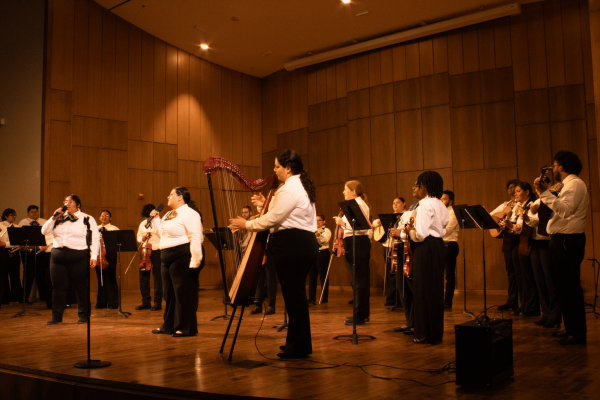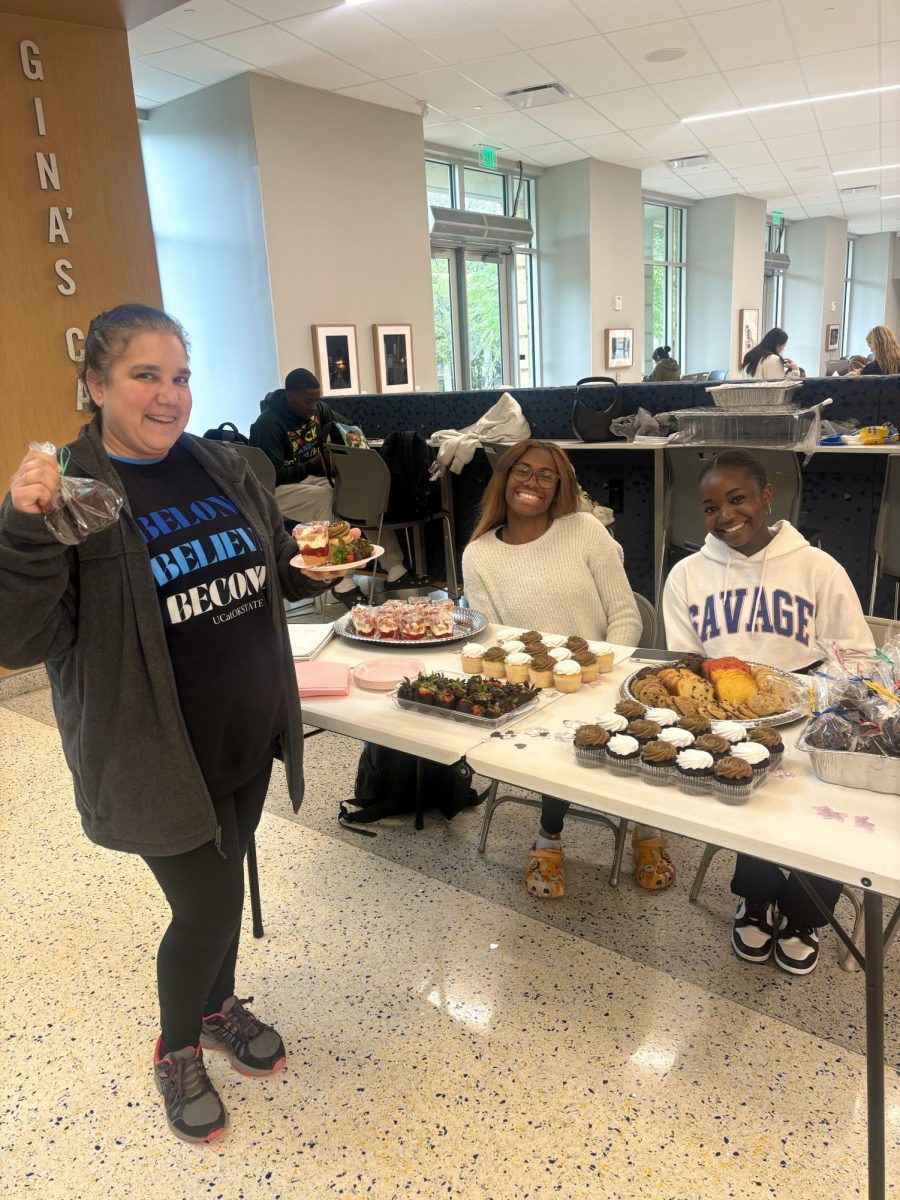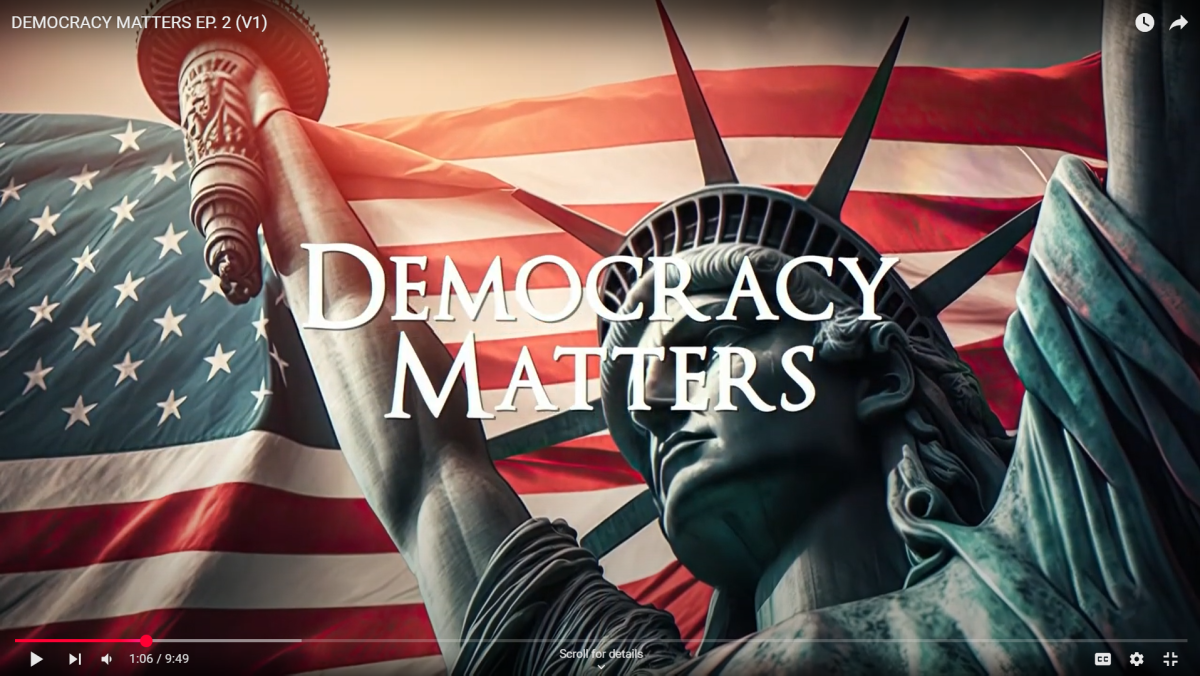Bertie Gardner, the assistant director of students and activities, previously titled as the director of student diversity and inclusion programs, has felt the full force of the Trump administration’s policies.
“Ever since Jan. 20th, there has been some way that he [Trump] has punched me in the face,” Gardner said. “Whether he is affecting my job on the university college campus or the youth that I serve.”
For Gardner, one of the most significant blows was the removal of all Diversity, Equity and Inclusion (DEI) initiatives across all organizations, labeling them illegal and immoral discrimination programs.
According to university spokesperson Karen Cantrell, Texas Wesleyan has complied with the federal orders related to dismantling all DEI programs at the university.
“As we move forward, Texas Wesleyan University remains steadfast in its mission to ensure every person can experience an education that is both meaningful and transformative,” Cantrell said. “Our values will always be the foundation upon which we build a stronger, more connected community.”
DEI initiatives refer to all policies and organizational initiatives that promote equal opportunities and supportive environments for underrepresented communities. These include programs such as Hispanic Serving Institutions (HSI), and Asian American & Pacific Islander Serving institutions, and other BIPOC programs that provide resources such as scholarships, cultural organizations and career opportunities to support students who are from historically marginalized groups. However, with the removal of DEI, public universities have stopped endorsing these organizations and may even defund them.
On Jan. 20, the federal government issued “Ending Radical And Wasteful Government DEI Programs And Preferencing,” a policy meant to prioritize competence and skill above factors like race and gender.
According to an article from the Texas Tribune, supporters of this policy believe that considering these factors above merit only results in preferential treatment over others, similar to affirmative action, and that everyone should have an equal start to the race.
Supporters of the removal of DEI also explain that the programs negatively reinterpret American history through the lens of white supremacy and critical race theory, pushing the narrative that the American people are divided into two categories: the oppressors and the oppressed.
“It’s exactly the opposite,” argues Texas Wesleyan associate history professor Christopher Ohan. “As a history professor I need to tell those diverse stories. I need to give each group equal playing time, and everybody needs to be included. The United States is a fabric of multiple groups of people, and it’s a unique fabric. Why would we not want to celebrate all of that? To me, it’s extremely positive. It [DEI] is in no way exclusionary.”
Gardner echoes Ohan’s belief that DEI is meant to create a culture of understanding and acceptance.
“DEI brings our differences to the forefront so that we are aware of what barriers people might be facing and still learning how to embrace them as part of our culture and not exclude,” Gardner said. “It’s meant to bring communities together. Getting rid of it seems to hide what they don’t feel is pretty enough to look at.”
Ohan expresses his fear of how the past will be interpreted, especially with the government’s recent discussions of removing the Department of Education.
“Without the Department of Education, there’s nothing to stop states from determining what narratives get taught,” Ohan said. “The Department of Ed was made up of professionals. You would get your master’s or PhD in education and then go work for the government. They would make up the curriculum with the cutting-edge theories and methodologies that you would be taught in an education program. But when you put it in the hands of the legislators, all of a sudden you have elected officials who may or may not know anything about teaching. That, to me, is a problem.”
Katherine Hernandez, a junior accounting major who is the Vice President of Texas Wesleyan’s American Association of University Women (AAUW), Red Cross and the secretary of the Programming and Activities Council (PAC), believes DEI is a way to learn from the past. She shared her experience with Mariachi, explaining how they still keep the tradition alive while inviting people of all backgrounds to participate.
“It’s really nice to see the tradition evolve,” Hernandez said. “We aren’t pushing that misrepresentation of history, but making a good change. Because before, women couldn’t play Mariachi. [They] wouldn’t play the trumpet or the harp because it was something ‘manly.’ Now when people see our Mariachi, they’re like ‘wow, that black or white player can speak and sing the Spanish song,’ and you get positive comments every time. It’s really nice to see.”

Gardner said that Texas Wesleyan still plans on hosting this semester’s cultural events. Hernandez says that while there are particular words or phrases that must be censored due to the university’s orders, there haven’t been any significant changes on campus yet as the policy is still in its early stages.
The same can’t be said for other universities, especially those that are public. According to the Texas Tribune, the University of Texas at Austin has defunded its multicultural center, defunding groups like the Afrikan American Affairs; the Asian Desi Pacific Islander American Collective; the Latinx Community Affairs; the Native American and Indigenous Collective; Queer and Trans Black Indigenous People of Color Agency; and Students for Equity and Diversity.
With the uncertainty of future federal actions, Hernandez urges students to find a community on campus and get involved. Hernandez continues to be heavily involved in her clubs on campus, lifting her communities and encouraging others to join.
“Getting involved on campus and finding a community here is so valuable,” Hernandez said. “I feel like it is an opportunity for students to share their voices.”
Gardner says his door is always open for those who need to vent, but also for those who want to join his community, LGBTQ Saves, a supportive community for queer youth ages 12 to 24.
“What I’m focused on is LGBTQ rights as a trans person,” Gardner said. “LGBTQ saves is being even more intentional on the spaces that we’re providing our youth. I have been hearing from my kiddos how unsafe they feel in the classroom; how they feel that they’re being bullied and it’s not being taken seriously because they are a queer student. And so it’s just making sure that when they are in my spaces, that they are receiving even more love than they might be receiving other ways.”
For further information on what clubs an organizations are here on campus, please visit RamSpace: https://txwes.edu/student-life/get-involved/ramspace/
In times of uncertainty, it is crucial to stay informed on federal, state and local government actions and how they affect your community. While the future effects of this policy are unknown, the university remains committed to providing a strong and connected environment, Cantrell says.
“We [Texas Wesleyan University] believe in the power of connection — bringing people together to learn from one another, collaborate and grow,” Cantrell said. “We are committed to providing an environment where each person feels supported and empowered to succeed, regardless of their background.”









![Pippin, played by Hunter Heart, leads a musical number in the second act of the musical. [Photo courtesy Kris Ikejiri]](https://therambler.org/wp-content/uploads/2025/04/Pippin-Review-1200x800.jpg)
![Harriet and Warren, played by Trinity Chenault and Trent Cole, embrace in a hug [Photo courtesy Lauren Hunt]](https://therambler.org/wp-content/uploads/2025/02/lettersfromthelibrary_01-1200x800.jpg)
![Samantha Barragan celebrates following victory in a bout. [Photo courtesy Tu Pha]](https://therambler.org/wp-content/uploads/2025/05/20250504_164435000_iOS-834x1200.jpg)





![Hunter Heart (center), the play's lead, rehearses a scene alongside other student actors. [Photo courtesy Jacob Sanchez]](https://therambler.org/wp-content/uploads/2025/04/thumbnail_IMG_8412-1200x816.jpg)
![Student actors rehearse for Pippin, Theatre Wesleyan's upcoming musical. [Photo courtesy Jacob Rivera-Sanchez]](https://therambler.org/wp-content/uploads/2025/04/Pippin-Preview-1200x739.jpg)
![[Photo courtesy Brooklyn Rowe]](https://therambler.org/wp-content/uploads/2025/05/CMYK_Shaiza_4227-1080x1200.jpg)

![Lady Rams softball wraps up weekend against Nelson Lions with a victory [6 – 1]](https://therambler.org/wp-content/uploads/2025/04/Screenshot-2025-04-04-100924-1200x647.png)


















![Rambler staff pose following the Texas Intercollegiate Press Association Convention award breakfast. [Photo courtesy Dr. Jenny Dean]](https://therambler.org/wp-content/uploads/2025/04/IMG_2646-1200x900.jpeg)